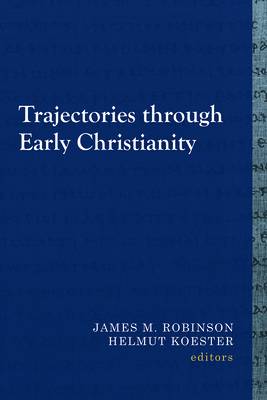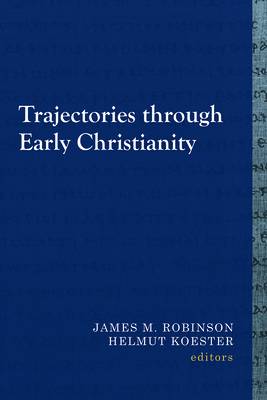
- Afhalen na 1 uur in een winkel met voorraad
- In januari gratis thuislevering in België
- Ruim aanbod met 7 miljoen producten
- Afhalen na 1 uur in een winkel met voorraad
- In januari gratis thuislevering in België
- Ruim aanbod met 7 miljoen producten
Trajectories Through Early Christianity
Omschrijving
In the early '70s, James M. Robinson (Claremont) and Helmut Koester (Harvard), both students of Bultmann, broke new ground in their Trajectories through Early Christianity. The eight essays that comprise this volume seek a wholesale redefinition of the task of New Testament studies, as well as illustrating this newly conceived task.
Robinson and Koester claim that the New Testament cannot be read apart from other early Christian literature and that the regnant designation of "canon" is misleading because it obscures the essential fluidity of early Christianity. Robinson and Koester not only question the artificial limits of the New Testament as a whole, but also the utility of the most commonly accepted forms ( Gattungen) that constitute the New Testament.
In the end, even the labels "orthodoxy" and "heresy" should be abandoned--along with an outmoded belief that orthodoxy preceded heresy and formed the center of Christianity. From its birth, Christianity was pluriform, and what later came to be known as "orthodoxy" and "heresy" were only two of many equally legitimate trajectories running through Christianity.
Robinson and Koester's bold wrestling with the basic question of Christian origins proves as instructive today as it did over forty years ago: was there ever identifiable unity in early Christianity, or has diversity always been the measuring stick?
Specificaties
Betrokkenen
- Uitgeverij:
Inhoud
- Aantal bladzijden:
- 312
- Taal:
- Engels
- Reeks:
Eigenschappen
- Productcode (EAN):
- 9781481309554
- Verschijningsdatum:
- 15/07/2018
- Uitvoering:
- Paperback
- Formaat:
- Trade paperback (VS)
- Afmetingen:
- 152 mm x 229 mm
- Gewicht:
- 458 g

Alleen bij Standaard Boekhandel
Beoordelingen
We publiceren alleen reviews die voldoen aan de voorwaarden voor reviews. Bekijk onze voorwaarden voor reviews.








